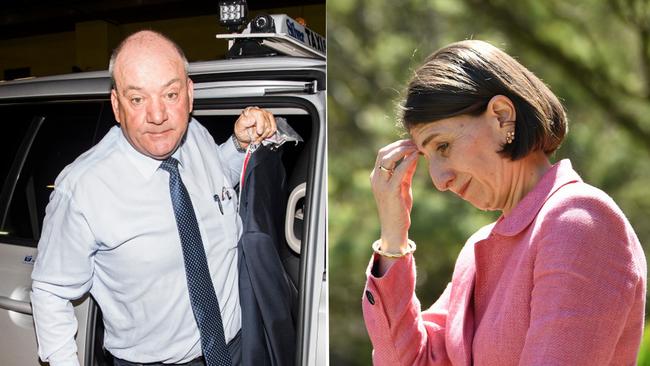
Often, in fact, love is the only way to break these impressive specimens of womanhood. And steely, constant Gladys tumbled headlong into a familiar trap. As Bill Shorten remarked so memorably when the stunning relationship became known: “She was punching below her weight.” Yet what woman hasn’t at some point in her life? Don’t so many of us have a destructive, regretful Daryl situation in our past? I do.
The narrative trope has long fascinated the titans of literature, who seized the emotional potential in the passion, the totality, the stupidity. It’s Isabel Archer and Gilbert Osmond, Anna Karenina and Vronsky, Lady Macbeth and Macbeth, Miss Julie and her valet. Just a few short weeks ago Gladys’s story had felt like one long, lonely, celibate commitment to service – until her state’s Independent Commission Against Corruption unearthed a five-year, highly secret relationship with a former politician of various shades of rotten.
It’s a unifying, universal, clever-woman event. “It’d be great to stop the shame,” one kickass girlfriend texted about her own Daryl-type mistake in the past. But it’s hard to, because the fall is so astonishing. To us, and to everyone else. Yet fall we do.
Desire is patient and very particular and you do not know when it will strike. But it may well lead us down paths we don’t want to go, or that aren’t necessarily good for us, and we may not recognise the inherent dangers. It consumes our focus and strength. And now a woman living alone, who had risen to the pinnacle of politics in her state, has revealed the awful truth, the nub of the horror: men can make us weak.
But we need them and will be felled by them again and again by falling in love with them. We bring ourselves undone by our own intrinsic wildness, our want for the force of passion. The artist Tracey Emin wrote in her memoir Strangeland, “Have you ever longed for someone so much, so deeply that you thought you would die? That your heart would just stop beating? I am longing now, but for whom I don’t know. My whole body craves to be held. I am desperate to love and be loved...”
It is as if love is the worst thing for us at times, for our self-belief and strength. Because of how it will weaken us. Subsume. Blind. This feels like a transgressive knowledge that we’re not quite ready for as young women. It’s as if we have to pass though the fire and come out the other side to understand.
My own daughter is strong, sparky, confident, fierce, yet I know one thing and one only will fell her – passion. And fear it. She needs the right kind of love. A generous one, that lets her be who she really wants to be, that doesn’t bind her or change her or use her or diminish her. That’s a gift to women, and can be surprisingly hard to find.
The sorry tale of Gladys and Daryl only reminds us of the folly of the strong woman blinded by love. But it doesn’t ignore the fact that she’s been compromised professionally, and this relationship was an unacceptable lapse in judgment that’s tainted a long, distinguished record of service. The entire sorry episode also illuminates the need for a federal anti-corruption body – imagine the gold that that might dig up.




So, Gladys and Daryl, eh. As in the girly swot, goody-two-shoes NSW premier and her secret love affair with Daryl Maguire, a man of dubious morality with his side hustle of bags of cash and unsavoury mates. Yet in terms of the tropes of love, well, it was ever thus – the narrative of the strong, independent-minded woman brought low by a lesser mortal, a man she fell hard for and was forever stained by. And Gladys Berejiklian will never be free of the grubbiness of this one, the shame.